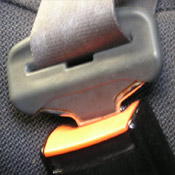
Nobody I know likes having to buy auto insurance, especially knowing their premiums are through the roof. Insurance companies such as Geico, Progressive and Allstate persitently shower you with ad campaigns and consumers find it hard to avoid their marketing magic and take the time to shop coverage around.
Discounts can save BIG
Auto insurance companies don’t always advertise every discount very clearly, so the following is a list of some of the more common and the more hidden discounts you could be receiving. If you’re not getting every credit you qualify for, you’re paying more than you need to.
- Sign Online – A few companies give back up to $50 for buying a policy and signing up on their website.
- Pay Upfront and Save – By paying your policy upfront instead of making monthly payments you can actually save on your bill.
- Low Mileage Discounts – Keeping the miles down can qualify you for lower rates on the low mileage vehicles.
- Anti-lock Brake Discount – Anti-lock brake equipped vehicles are safer to drive and earn discounts up to 10%.
- Club Memberships – Participating in certain professional organizations may earn a discount on auto insurance.
- Defensive Driving Course – Successfully completing a driver safety course could cut 5% off your bill and easily recoup the cost of the course.
- Multiple Policy Discount – If you have multiple policies with one company you may earn at least 10% off all policies.
- Student Driver Training – Have your child take driver’s ed class if it’s offered in school.
- Life Insurance Discount – Select insurance companies reward you with a break if you buy auto and life insurance together.
Consumers should know that some credits don’t apply to the entire policy premium. Most only apply to the cost of specific coverages such as comp or med pay. Even though it may seem like all the discounts add up to a free policy, companies wouldn’t make money that way.
For a list of companies offering auto insurance discounts in West Virginia, click here.
Coverages available on your policy
Having a good grasp of a auto insurance policy can help you determine appropriate coverage and proper limits and deductibles. Policy terminology can be difficult to understand and nobody wants to actually read their policy. Listed below are typical coverage types found on the average auto insurance policy.
Comprehensive or Other Than Collision
Comprehensive insurance coverage covers damage caused by mother nature, theft, vandalism and other events. You first have to pay a deductible then the remaining damage will be covered by your comprehensive coverage.
Comprehensive coverage pays for things such as falling objects, damage from flooding, a broken windshield and vandalism. The most a auto insurance company will pay at claim time is the cash value of the vehicle, so if your deductible is as high as the vehicle’s value it’s probably time to drop comprehensive insurance.
Liability coverages
This coverage protects you from injuries or damage you cause to other people or property by causing an accident. Split limit liability has three limits of coverage: bodily injury for each person, bodily injury for the entire accident, and a limit for property damage. Your policy might show values of 25/50/25 which means $25,000 in coverage for each person’s injuries, $50,000 for the entire accident, and $25,000 of coverage for damaged propery.
Liability coverage pays for claims such as repair costs for stationary objects, repair bills for other people’s vehicles and loss of income. How much liability should you purchase? That is your choice, but you should buy as high a limit as you can afford. West Virginia requires drivers to carry at least 20,000/40,000/10,000 but you should think about purchasing higher limits.
Medical costs insurance
Personal Injury Protection (PIP) and medical payments coverage provide coverage for bills for things like funeral costs, nursing services, prosthetic devices and ambulance fees. They are often utilized in addition to your health insurance policy or if you do not have health coverage. Medical payments and PIP cover all vehicle occupants and will also cover being hit by a car walking across the street. PIP is only offered in select states and gives slightly broader coverage than med pay
UM/UIM Coverage
Your UM/UIM coverage gives you protection when the “other guys” are uninsured or don’t have enough coverage. Covered claims include injuries sustained by your vehicle’s occupants and damage to your vehicle.
Due to the fact that many West Virginia drivers only purchase the least amount of liability that is required (20/40/10), their liability coverage can quickly be exhausted. For this reason, having high UM/UIM coverages is important protection for you and your family.
Coverage for collisions
Collision insurance will pay to fix damage to your vehicle resulting from a collision with another vehicle or an object, but not an animal. You first must pay a deductible then the remaining damage will be paid by your insurance company.
Collision insurance covers things like damaging your car on a curb, scraping a guard rail, colliding with another moving vehicle, crashing into a ditch and backing into a parked car. Collision is rather expensive coverage, so you might think about dropping it from vehicles that are 8 years or older. You can also choose a higher deductible to get cheaper collision coverage.
Additional consumer information websites
Even more information can be found at the West Virginia Insurance Commission website. West Virginia drivers can file complaints about an insurance agent or broker, find out which companies have the most complaints, find disaster information, and download brochures.
A little work can save a LOT of money
We just presented some good ideas how you can save on auto insurance. It’s most important to understand that the more rate quotes you have, the better likelihood of reducing your rate. Consumers may even find the lowest premiums are with a lesser-known regional company. These companies may often insure only within specific states and give getter rates as compared to the big name companies such as Progressive and Geico.
While you’re price shopping online, it’s a bad idea to reduce needed coverages to save money. In many instances, consumers will sacrifice collision coverage and discovered at claim time that the few dollars in savings costed them thousands. Your focus should be to purchase plenty of coverage at the best price, not the least amount of coverage.
Lower-priced auto insurance can be sourced from both online companies in addition to many Kenova insurance agents, so you should be comparing quotes from both in order to have the best chance of saving money. Some companies do not provide the ability to get a quote online and these small insurance companies work with independent agents.

